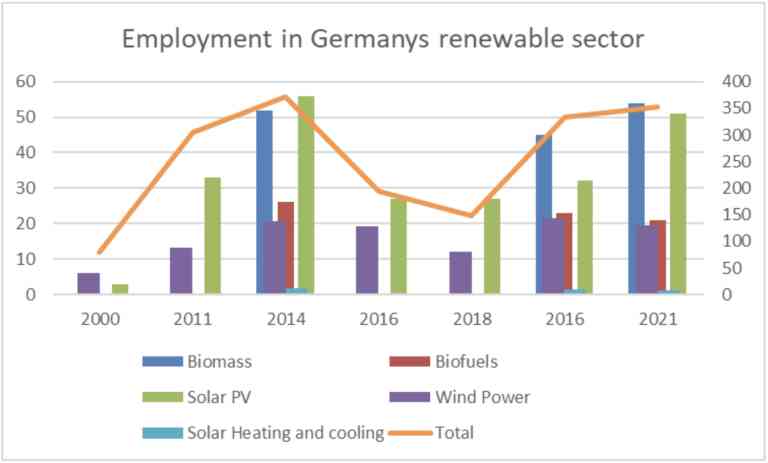European Economic and Social Committee. (2014). Opinion on tackling the skills mismatch through upskilling and reskilling of the workforce. https://www.eesc.europa.eu/sites/default/files/files/qe-05-23-214-en-n.pdf
Federal Ministry for Economic Affairs and Energy. (2015). The Energy Transition: Switch to the future. https://www.bmwk-energiewende.de/EWD/Redaktion/EN/Newsletter/2015/01/Meldung/topthema-the-energy-transition.html
Federal Ministry of Education and Research. (2008). The Qualification Initiative for Germany. https://www.bmbf.de/en/index.html
International Energy Agency. (2023). World Energy Investment 2023. Retrieved from https://www.iea.org/reports/world-energy-investment-2023/overview-and-key-findings
International Renewable Energy Agency (IRENA). (2021). Renewable power generation costs in 2021. https://www.irena.org/publications/2022/Jul/Renewable-Power-Generation-Costs-in-2021
International Renewable Energy Agency (IRENA). (2023). Renewable power generation costs in 2023. https://www.irena.org/publications/2022/Jul/Renewable-Power-Generation-Costs-in-2021
International Renewable Energy Agency (IRENA). (2013). Renewable power generation costs in 2013. https://www.irena.org/publications/2022/Jul/Renewable-Power-Generation-Costs-in-2021
National Renewable Energy Laboratory. (2023). Wind Technology, Cost, and Performance Trends. https://www.nrel.gov/docs/fy23osti/81246.pdf
Springer. (2023). Sustainable Science. https://link.springer.com/article/10.1007/s11625-023-01440-y
ScienceDirect. (2007). Energy Policy. https://www.sciencedirect.com/science/article/pii/S0301421507003850
Statista. (n.d.). Number of employees in the renewable energy sector in Germany from 2000 to 2022. https://www.statista.com/statistics/583431/renewable-energy-sector-employees-germany/









